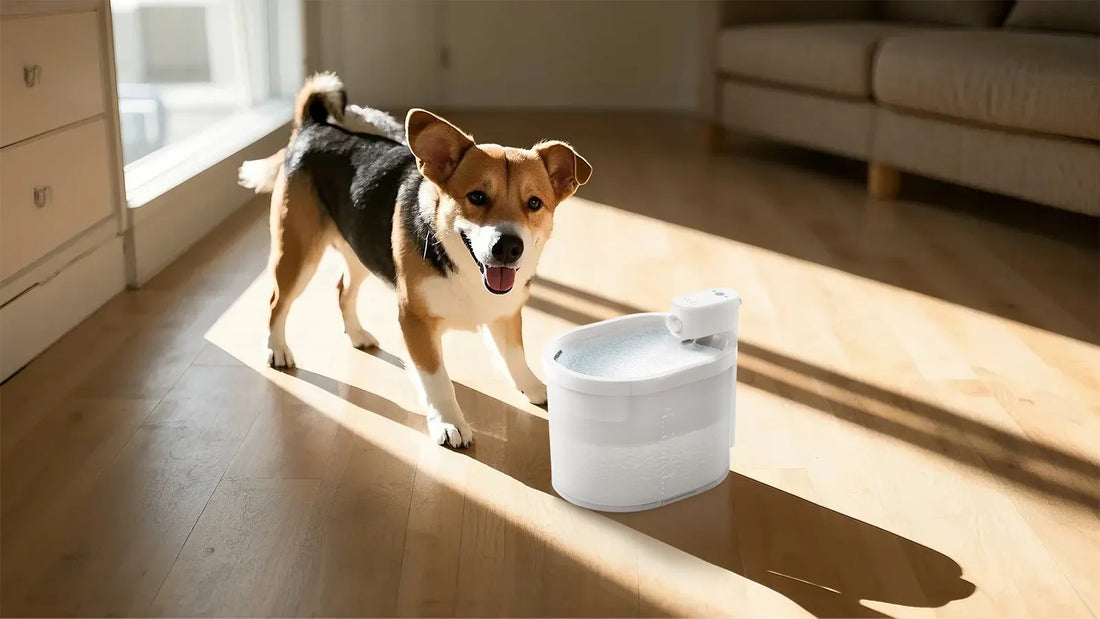As your dog ages, you may notice changes in their behavior, appetite, and habits. One common concern among pet owners is when their senior dog starts drinking more water than usual. While it might seem like a minor issue, excessive water intake can sometimes signal underlying health problems. Understanding the potential causes can help you determine whether this behavior is normal or requires veterinary attention.
Normal vs. Excessive Water Consumption
Before jumping to conclusions, it’s important to distinguish between normal and excessive water intake. On average, a healthy dog drinks about one ounce of water per pound of body weight daily. For example, a 20-pound dog would typically consume around 20 ounces of water each day. However, factors like weather, activity level, and diet can influence this amount. If your senior dog is drinking significantly more than this, it’s worth investigating further.
Common Causes of Increased Water Intake in Senior Dogs
Several factors can contribute to excessive water consumption in older dogs. Here are some of the most common causes:
1. Dehydration
Dehydration can occur due to hot weather, increased physical activity, or illness. If your dog is dehydrated, they may drink more water to compensate. Signs of dehydration include dry gums, lethargy, and loss of skin elasticity. Ensuring your dog has access to fresh water at all times can help prevent dehydration.
2. Kidney Disease
Kidney disease is a common condition in senior dogs. As the kidneys lose their ability to concentrate urine, dogs may drink more water to flush out toxins. Other symptoms of kidney disease include increased urination, weight loss, and a lack of appetite. Early detection and treatment are crucial for managing this condition.
3. Diabetes
Diabetes mellitus is another potential cause of excessive thirst in older dogs. This condition occurs when the body cannot regulate blood sugar levels effectively. Dogs with diabetes often drink more water and urinate frequently. Other signs include increased hunger, weight loss, and lethargy. If you suspect your dog has diabetes, consult your veterinarian for a proper diagnosis.
4. Cushing’s Disease
Cushing’s disease, or hyperadrenocorticism, is a hormonal disorder that affects older dogs. It occurs when the adrenal glands produce too much cortisol. Symptoms include increased thirst and urination, a pot-bellied appearance, and hair loss. Blood tests and imaging can help diagnose this condition.
5. Medications
Certain medications, such as diuretics or steroids, can cause increased thirst in dogs. If your senior dog has recently started a new medication and is drinking more water, discuss this with your veterinarian. They may adjust the dosage or recommend alternative treatments.
6. Infections
Urinary tract infections (UTIs) and other infections can lead to increased water intake. Dogs with UTIs may also exhibit symptoms like frequent urination, straining to urinate, or blood in the urine. Prompt treatment with antibiotics is essential to resolve the infection.
When to Seek Veterinary Care
While occasional increases in water consumption may not be cause for concern, persistent or excessive thirst should not be ignored. If your senior dog is drinking significantly more water than usual and exhibiting other symptoms like lethargy, weight loss, or changes in appetite, it’s time to consult your veterinarian. Early diagnosis and treatment can improve your dog’s quality of life and prevent complications.
How to Monitor Your Dog’s Water Intake
To determine whether your dog’s water consumption is excessive, start by measuring how much they drink daily. Use a measuring cup to track the amount of water you pour into their bowl and note any changes. Keep an eye on their behavior, appetite, and urination patterns as well. This information can be valuable for your veterinarian during the diagnostic process.
Preventing Excessive Water Intake
While some causes of increased thirst are unavoidable, there are steps you can take to support your senior dog’s health. Provide a balanced diet, ensure regular exercise, and schedule routine veterinary check-ups. Monitoring your dog’s water intake and addressing any concerns promptly can help keep them healthy and happy in their golden years.
If you’ve noticed your senior dog drinking more water than usual, don’t panic—but don’t ignore it either. By understanding the potential causes and seeking veterinary care when needed, you can ensure your furry friend stays comfortable and healthy. After all, they’ve spent their lives by your side; now it’s your turn to take care of them.













